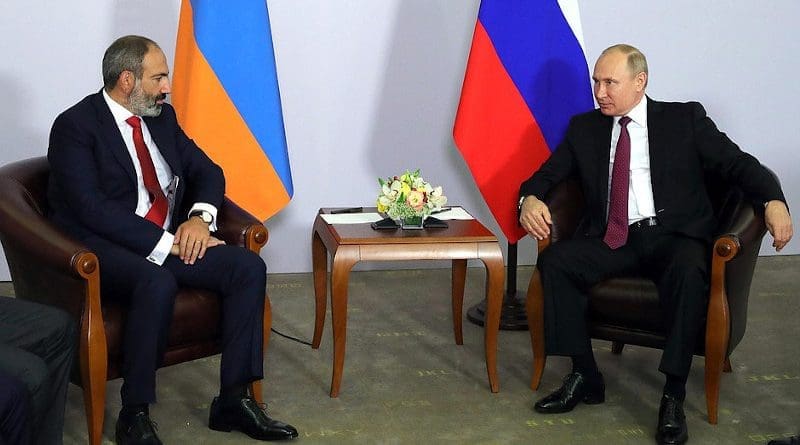Current Crisis In Russian-Armenian Relations Reflects Changes In Both Countries – OpEd
By Paul Goble
The current deterioration of relations between Moscow and Yerevan is not the result of bad personal relations between Putin and Pashinyan, Sergey Markedonov says, but rather reflects fundamental changes in each, including most prominently Russia’s dependence on Azerbaijan and Turkey and a generational shift in Armenia.
The changes in Armenia are more immediately striking, but the changes in Russia may ultimately prove more important, according to the Russian specialist on the Caucasus now at MGIMO (profile.ru/abroad/iz-za-chego-v-otnosheniyah-moskvy-i-erevana-nachalsya-krizis-i-kak-daleko-on-zajdet-1431698/).
Not only has Armenia lost Karabakh and the role that disputed territory played in defining Yerevan’s politics at home and abroad – the new leadership in Yerevan came to power on issues not related to that one — Markedonov says; but an entirely new generation of Armenian leaders has come to power, one whose members have little memory of Soviet times.
In 1991, the current Armenian prime minister was 16, his foreign minister was 12, his Security Council secretary eight, the head of the Armenian parliament was 11, and the mayor of Yerevan only two. And thus it is indicative that “Pashinyan became the first leader of post-Soviet Armenia for whom Russian wasn’t a native language but a learned one!”
Consequently, this new ruling group was prepared to move away from Moscow and seek expanded ties elsewhere. Their predecessors had already distanced themselves from Russia but had not moved toward the divorce that the Pashinyan government appears to be heading, Markedonov continues.
At the same time, he says, Russia had its own reasons for shifting away from Armenia, reasons that are “often forgotten in Yerevan.” Putin’s “special military operation” not only meant that Moscow was focusing primarily on Ukraine but was reevaluating relations with other countries in terms of that conflict.
“For Russia today, it is more important to preserve the Turkish and Azerbaijani ‘windows’ to the outside world and to avoid the opening of ‘a second front’ in the Trans-Caucasus than to struggle for the preservation there of the former status quo,” Markedonov argues.
For that reason and because it is “difficult to be more Armenian than Armenia” as far as Karabakh is concerned, Moscow has distanced itself from Yerevan at least for the present – although Markedonov expresses the hope that the situation could change once again just as it did a century ago.

